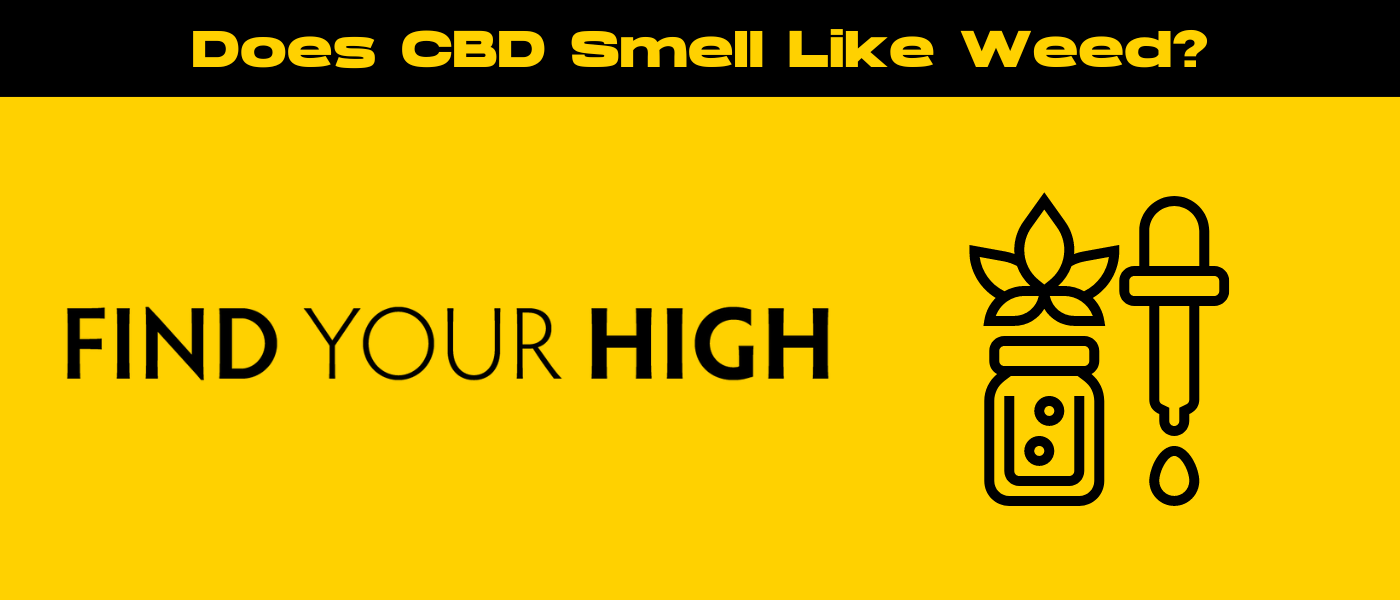Ahh… CBD: It’s all the rage. But the question on everybody’s mind: Does CBD smell like weed?
Cannabidiol (CBD) is a compound derived from the cannabis plant. It has surged in popularity over the past few years, fueled by its potential health benefits ranging from pain relief to anxiety and stress reduction.
Unlike its more famous cousin, THC (tetrahydrocannabinol), CBD is non-intoxicating, meaning it won’t get you “high.” This distinctive feature has led to its legalization in many parts of the world, making it accessible in various forms like oils, tinctures, edibles, and topicals.
However, despite its growing acceptance and scientific interest, CBD still carries the stigma of its association with marijuana, leading to common misconceptions and confusion, particularly regarding its smell, effects, and legal status.
This blog will clarify the smell connection between CBD and cannabis. We’ll look at what affects CBD product scents, the role of terpenes, and what it means to use CBD in a society that’s still getting used to cannabis derivatives.
What is CBD? Definition and Extraction Process
Cannabidiol, commonly referred to as CBD, is one of the many compounds found in the cannabis plant. Unlike THC, which is known for its psychoactive properties, CBD does not produce a high.
Its extraction mainly occurs from the hemp plant, a cannabis sativa variety that contains high CBD levels and low THC levels. The extraction process typically involves using CO2 or ethanol to separate CBD from the plant material, resulting in a concentrate that can be further refined and added to various products.
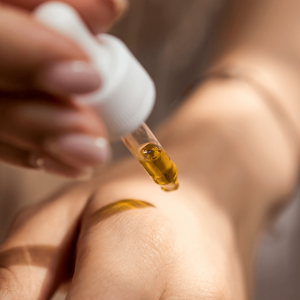
Types of CBD Products Available on the Market
Edibles:
These are ingestible products infused with CBD oil, available in the form of gummies, chocolates, cookies, and beverages. Edibles are popular for their ease of use and long-lasting effects.
Topicals:
CBD-infused creams, balms, and lotions applied directly to the skin. Ideal for targeted relief, topicals are used for pain management or skin conditions.
Pre-Rolls:
Hemp flowers rich in CBD are rolled into joints. These are smoked like traditional cannabis but without the high associated with THC.
Oils and Tinctures:
Oils and tinctures are concentrated forms of CBD that can be taken sublingually (under the tongue) or added to food and drinks. They offer precise dosing and fast absorption.
Capsules:
Gel capsules or pills containing CBD oil. This form provides a discreet and convenient way to consume CBD, with the advantage of precise dosages.
Vapes:
CBD oil can be vaporized and inhaled. Vaping offers the quickest onset of effects, making it a preferred method for those seeking immediate relief.
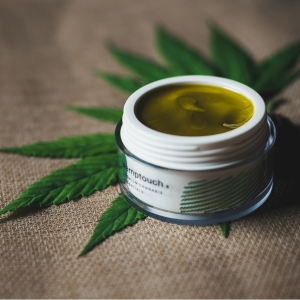
Understanding Cannabis: CBD vs. THC
When exploring the world of weed, it’s crucial to understand the differences between CBD (Cannabidiol) and THC (Tetrahydrocannabinol), two of the most prominent cannabinoids found in the plant. Here’s a brief overview:
- Chemical Structure of CBD and THC: Both cannabinoids share the same molecular formula, C21H30O2, and molecular weight, but their atoms are arranged differently. This slight variance in arrangement accounts for the differing effects they have on the body.
- The Legal Distinction Between Hemp and Marijuana: Legally, the primary distinction stems from the THC content. Hemp is classified as a cannabis plant containing 0.3% or less THC content by dry weight, making it legal in many countries, including the United States under the Farm Bill. In contrast, marijuana typically contains a higher concentration of THC and is subject to stricter regulations due to its psychoactive effects.
Effects of THC vs. CBD on the Body:
THC is best known for its psychoactive effects, which can induce feelings of euphoria and relaxation but may also lead to anxiety and paranoia in some individuals.
CBD, on the other hand, does not produce the “high” associated with THC. Instead, it’s sought after for potential therapeutic effects, including alleviating pain, reducing inflammation, and mitigating anxiety and depression.
Understanding these distinctions is key for consumers navigating the cannabis market, whether they’re seeking relief from specific symptoms or merely curious about the different products available.
The Scent Profile of Cannabis
The unique smell of cannabis comes from its terpene profile. Terpenes are compounds that give plants their aroma, and in cannabis, they play a big role in determining each strain’s scent and taste.
Depending on the terpenes, cannabis can smell earthy, woodsy, citrusy, or sweet. The plant’s genetics, its growing environment, and how it’s cultivated and cured all affect its terpene content and smell. But terpenes do more than just make cannabis smell a certain way; they also impact its therapeutic effects and how it might affect you.
Understanding terpenes is crucial not just for choosing a cannabis product by its smell, but also for picking one that has the effects you’re looking for, whether for health reasons or enjoyment.
Does CBD Smell Like Weed?
One common question surrounding CBD is whether it smells like weed. Now, the answer is not straightforward since the scent primarily depends on the presence of terpenes. CBD-rich hemp and THC-rich marijuana come from the same plant family and contain similar terpenes; therefore, in their natural state, they can have similar smells.
However, the scent of CBD products can vary significantly due to the processing methods used. For instance, CBD isolates, which are 99% pure CBD, have little to no scent as the extraction process removes most terpenes and other compounds.
On the other hand, full-spectrum CBD products retain most of the plant’s original terpenes and cannabinoids, including a small amount of THC, which can give them a more prominent cannabis-like smell.
The processing and refinement of CBD play a crucial role in determining the final product’s scent profile. For those sensitive to the smell of cannabis or concerned about the social implications of using CBD products that smell like weed, it is beneficial to explore products based on isolate or broad-spectrum CBD, which are less likely to carry the characteristic cannabis aroma.
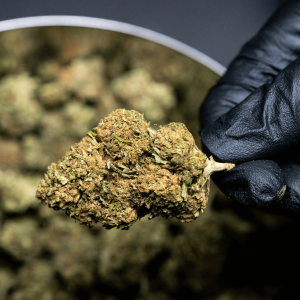
How Processing Affects CBD Smell
CBD smells can vary greatly depending on its processing and extraction methods. These methods not only determine the purity and potency of the final product but also its terpene profile, which influences the scent.
For example, CO2 extraction is known for its ability to preserve terpenes, potentially retaining more of the cannabis plant’s natural aroma. Ethanol extraction, while effective in extracting cannabinoids, can alter the terpene profile and, as a result, the scent of the CBD product.
Furthermore, the introduction of additives and flavors plays a significant role in the final smell of CBD products. Manufacturers often add natural or synthetic flavors to enhance the product’s palatability, especially in edibles and vape juices. These additives can completely mask the natural scent of cannabis, offering users a broad range of aroma choices, from fruity to minty, without affecting the product’s CBD content.
Hence, the specific processing technique of hemp plants and the choice of additives are critical in determining both the effectiveness and the sensory experience of CBD products.
Does the Smell Indicate Quality or Potency?
The link between how CBD products smell and their quality or strength is complex. Just because a CBD product smells strongly of cannabis doesn’t mean it’s of higher quality or more potent. To really know a product’s quality and potency, it’s best to check its lab reports. These reports give you a detailed look at what’s in the product, like cannabinoid and terpene levels, and if there are any contaminants.
Lab reports are key for understanding what’s in your CBD product, showing not just how much CBD is present, but also other cannabinoids and terpenes. Additionally, they’re crucial for making sure the product meets legal standards, including how much THC is present, and ensuring there are no harmful substances like pesticides or heavy metals.
Knowing about the terpenes in a product is especially helpful because they can boost CBD’s effects through the entourage effect. This is when cannabinoids and terpenes work together to improve the overall impact. So, while the smell of a CBD product, which comes from its terpenes, might give you a clue about the plant’s original features and possible health benefits, the lab report is what really tells you about its quality, safety, and how effective it might be.
Conclusion
In summary, it’s crucial for consumers to understand the key differences between THC and CBD, how they affect the body, and the scent profiles of cannabis products, especially CBD, when navigating the complex market.
THC is known for its psychoactive effects, while CBD is prized for its potential therapeutic benefits without the high. The smell of cannabis products, which comes from their terpene profile, can change based on how they’re extracted and processed. However, the smell doesn’t necessarily tell you about the quality or strength of CBD products.
Understanding and researching CBD products is key to making smart choices. Lab reports are essential as they tell you about the product’s contents, quality, and safety, including levels of cannabinoids and terpenes, and ensure the product meets legal requirements and is free from harmful substances.
With CBD products becoming more popular and widely available, being informed helps consumers choose products that match their health goals and preferences. This highlights the importance of education and research in choosing CBD products.
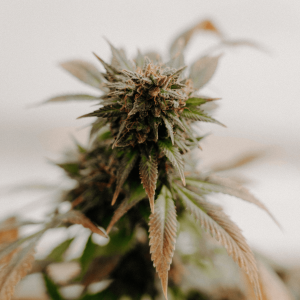
Frequently Asked Questions
1. Does CBD Make You Smell Like Weed?
No, using CBD in itself, especially hemp-derived CBD products, should not make you smell like weed. Although CBD products may carry a scent similar to cannabis plants if they contain terpenes, this smell does not transfer to your body or breath. Individual use, such as topical applications or consumption, does not result in a lingering cannabis odor on the person.
2. Does Delta 8 Smell Like Weed?
Yes, Delta 8 THC products have a distinct aroma and can smell like weed because they are derived from the cannabis plant and contain terpenes similar to those found in cannabis flowers. The intensity of the smell can vary depending on the product’s formulation and the presence of other aromatic compounds.
3. What Does Hemp Oil Smell Like?
Hemp oil typically has a nutty, earthy, or grassy aroma, reflecting its natural origin from the seeds of the hemp plant. The scent can vary somewhat based on the oil’s purity and how it was processed, but it generally lacks the strong cannabis odor associated with high-terpene products.
4. Does CBD Show Up on Drug Tests for Probation?
CBD itself does not show up on standard drug tests, which are designed to detect the presence of THC, the psychoactive compound in marijuana. However, broad-spectrum hemp extract can contain trace amounts of THC, and in rare cases, heavy or prolonged use of these products might lead to a positive drug test result. For probation or other situations where drug testing is a concern, it may be best to use broad-spectrum CBD or CBD isolate products, which contain no THC.
5. Does CBD smell like weed?
The scent of CBD products can vary and may not always smell like traditional cannabis. This is because CBD is odorless; the aroma comes from the terpenes, which are aromatic compounds found in many plants, including cannabis. Products with a full spectrum of terpenes may smell like weed due to these compounds.
However, CBD isolates or products derived from them, which lack terpenes, don’t have a cannabis-like smell. The scent can also change based on additional ingredients or flavorings that may mask or change the natural hemp flower scent.

 Rewards
Rewards



